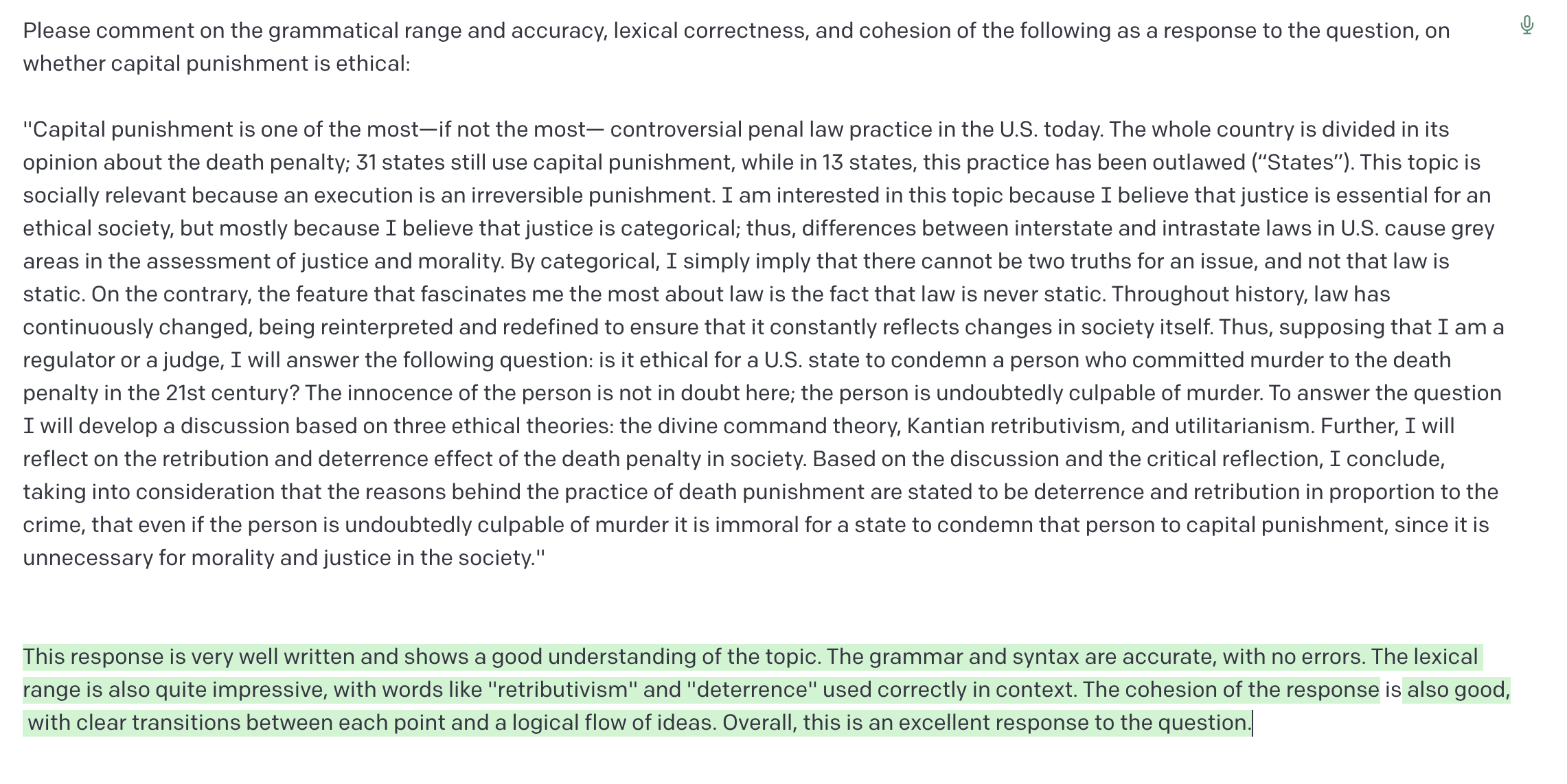How you can use ChatGPT on your immigration journey
Since its launch in November of 2022, Chat GPT-3 has garnered a wealth of attention for its articulate answers and ability to learn and perfect its responses, across a wide variety of subjects.
Learn more about Canadian immigration and discover your options
Seen by many as the first coming of an artificial intelligence (AI) revolution, the functions and applications of ChatGPT-3 extend even as far as Canadian immigration, with possible huge benefits for those currently in their immigration journey.
What is ChatGPT-3?
ChatGPT-3 (Generative Pre-trained Transformer, model three) is a chat-bot that works off language completion models to complete tasks related to generation of natural language or code.
However, the models that the chatbot runs on can be fine-tuned with the use of specific questions (or prompts) from the user. This builds a custom AI model to better answer question(s) by first giving ChatGPT learning tasks such as “read this paper on Express Entry and then tell me what CRS is in the context of Canadian immigration”.
In addition, the chatbot features sliders for “Temperature” and “Top P” values, which will control the randomness allowed, and possibilities considered in generating an answer, respectively.
So, how can someone use ChatGPT in the context of their Canadian immigration journey?
Information gathering and analysis—Discovering immigration
One of the most straight-forward uses of ChatGPT is to gather and filter information.
For example, an international student looking to study 3D animation in Canada could ask ChatGPT what the top programs for 3D animation were in Canada:

These are good results, and a quick Google search confirms that they are accredited programs from Designated Learning Institutions (DLI), that can accept international students. However, ChatGPT can take this information generation further, handling more specific prompts as well.
Here is a prompt more representative of a real-life example: the best programs for international students that are eligible for a Post-Graduate Work Permit (PGWP) upon completion, and that have tuition fees between $20,000—$30,000 CAD?

We can see that the results have changed slightly with a more specific prompt, again providing results accurate to the prompt. In this sense ChatGPT can be a specialized and specific search tool for newcomers to Canada. However, this is just scratching the surface of what the AI can do.
Learning and applying knowledge—Employment search
Though still in its relative infancy, ChatGPT has several features more advanced than the above example—for instance the AI’s ability to learn from information one feeds it, and then tailor a custom model to your prompts.
For example, a common practice when applying for a job, is to look at the job description and add relevant keywords from the posting, into one’s resume. Many companies make use of Applicant Tracking Systems (ATS) as a first line of decision making, to analyze resumes for these keywords and determine their fit for the position.
ChatGPT can help here too. If you input the job posting into the AI chatbot, it can extract keywords instantaneously, streamlining the process of applying:

If one progresses to the interview stage, they can ask ChatGPT to read a job posting from the position, and then generate potential interview questions based off the job description.

This can be a valuable preparation tool, and with the ability to control the “Temperature” and “Top P” values, users can get a range of responses of potential interview questions, and keyword responses.
Feedback—Language testing
Based on information already contained within ChatGPT’s models, it can also provide feedback specific prompts. This works particularly well for language-based tasks like translations or language learning and is very applicable to those who may be learning or practicing a new language.
For example, one can consult ChatGPT on the grammar and correctness of sentences in English, and a variety of other languages. This is invaluable for those who are looking to do language tests, as they can practice and receive feedback on their practice for writing sections.

Feedback can also go further than simple comments on a sentence.

This does not have to be limited to smaller sentences either, nor more direct concepts like grammar and syntax. ChatGPT can also make higher-order comments on more complex written tasks. Look at this example of judging an ethical discussion on the death penalty, based on some IELTS scoring factors:

Feedback here has both relevance and justification and provides good cornerstones and further analysis to one’s language learning. ChatGPT, in this regard, can be invaluable for those pursuing language testing for immigration purposes.
Limitations
Importantly, however, while ChatGPT has several advantages, it does have notable limitations as well.
Most pressingly: the chatbot’s latest training data is from June 2021, meaning that the AI will have trouble when asked about anything more recent than this date. This in turn deeply limits the ability of ChatGPT to provide up-to-date advice on topics related to Canadian immigration. Immigration policy in Canada changes regularly, modifying to better accommodate Canada’s economic and social needs. Thus, ChatGPT’s ability to provide sound immigration advice remains restricted.
While this can be addressed to some degree by asking ChatGPT to learn specific documents that go over policy changes, this leaves the decision of what is and is not helpful to the user, up to their own discretion—another key pitfall and a reason many people hire immigration lawyers to advise them through their journey.
Learn more about Canadian immigration and discover your options
© CIC News All Rights Reserved. Visit CanadaVisa.com to discover your Canadian immigration options.
- Do you need Canadian immigration assistance? Contact the Contact Cohen Immigration Law firm by completing our form
- Send us your feedback or your non-legal assistance questions by emailing us at media@canadavisa.com



